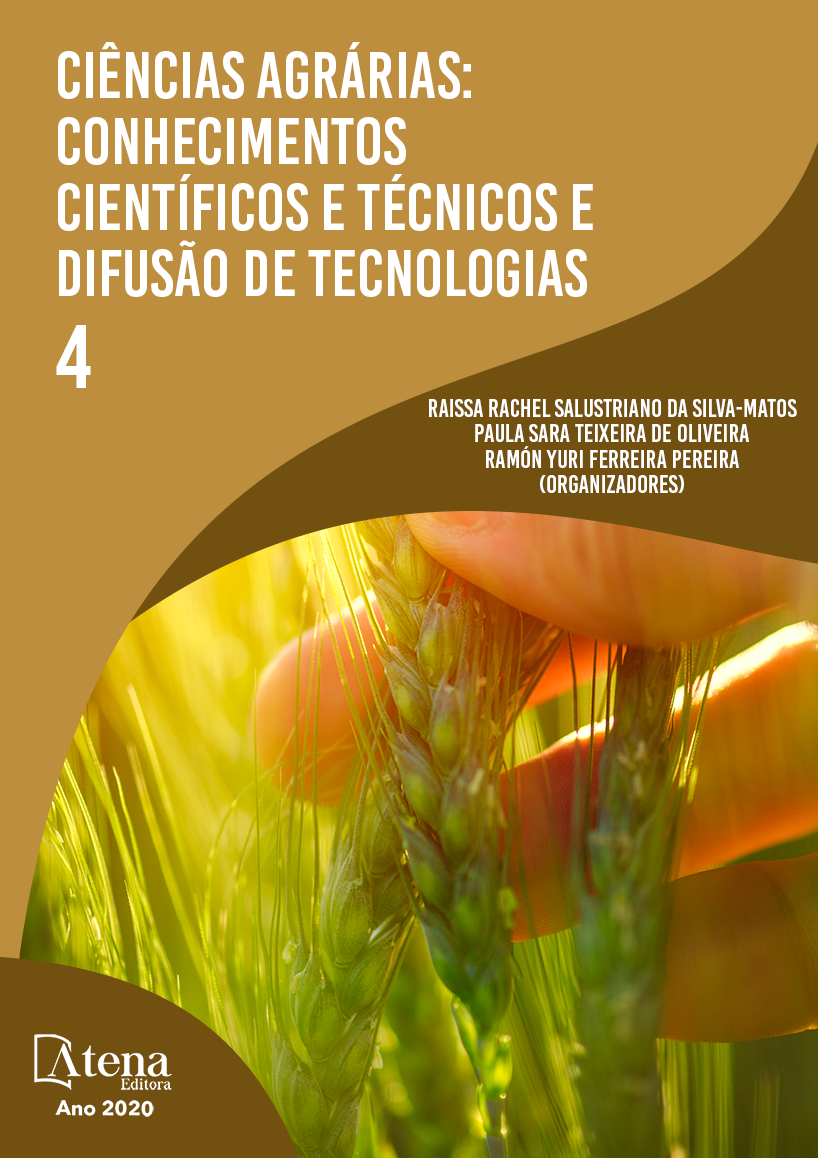
AVALIAÇÃO DA ATIVIDADE PESTICIDA DE EXTRATO ETANÓLICO DAS FOLHAS DO TIPI (Petiveria alliacea)
Estudos têm reportado o potencial bioativo da Petiveria alliacea, espécime vegetal com compostos bioativos passíveis de serem utilizados no controle de pragas e verminoses, bem como agente bactericida e fungicida. Este arbusto, conhecido popularmente como tipi, é encontrado principalmente na América do Sul e Central, algumas áreas da África e do sudeste dos Estados Unidos, bem como no Caribe. Dentre os agentes vetores com potencial de provocar causar doenças encontra-se o Aedes aegypti, mosquito com maior dispersão em áreas urbanas abaixo da linha do Equador. Na agricultura o Lasiodiplodia theobromae, um fungo oportunista, cosmopolita e polífago, que sobrevive na atmosfera ambiente e nos tecidos (vivos ou mortos) de vegetais encontra-se disseminado em todas as regiões tropicais e subtropicais do mundo. Desta forma, o objetivo do presente trabalho foi avaliar o limiar tóxico do extrato bruto etanólico das folhas do tipi frente à Artemia salina com a finalidade de determinar a dose máxima de extrato a ser utilizada com segurança no controle de patógenos, bem como, determinar os metabólitos secundários do composto etanólico por meio de testes fitoquímicos e avaliar o potencial antioxidante do extrato através do teste DPPH (difenil-picril-hidrazina), além de verificar o potencial larvicida frente ao mosquito Aedes aegypti e sua atividade fungicida frente ao fungo L. theobromae. A atividade larvicida foi determinada a partir do método Probitos de análise para obtenção da Concentração Letal Média (CL50). Para a atividade frente ao L. theobromae foi realizada a determinação do percentual de inibição de crescimento micelial (PIC). O ensaio para avaliar a atividade antioxidante revelou que o composto etanólico das folhas da P. alliacea apresentou baixa atividade antioxidante. Na avaliação da atividade fungicida os resultados indicaram que o extrato não apresenta atividade frente ao fungo L. thebromae. Em relação ao mosquito A. aegypti, o extrato apresentou pouca atividade.
AVALIAÇÃO DA ATIVIDADE PESTICIDA DE EXTRATO ETANÓLICO DAS FOLHAS DO TIPI (Petiveria alliacea)
-
DOI: 10.22533/at.ed.8862015075
-
Palavras-chave: Petiveria alliacea; Aedes aegypti; Lasiodiplodia theobromae; atividade larvicida; atividade antioxidante
-
Keywords: P. alliacea; Aedes aegypti; Lasiodiplodia theobromae larvicidal activity; antioxidant activity
-
Abstract:
Studies have reported the bioactive potential of Petiveria alliacea, a plant specimen with bioactive compounds that can be used in the control of pests and worms and as bactericidal and fungicidal agent. Among the agents with potential to cause disease is Aedes aegypti, currently the most widely dispersed mosquito in urban areas of the world. In agriculture Lasiodiplodia theobromae, an opportunistic, cosmopolite and polyphagous fungus that survives in the atmosphere and in living or dead plant tissues is widespread in all tropical and subtropical regions of the world. Therefore, the objective of the present study is to evaluate the toxic threshold of the ethanolic extract of the leaves of the species P. alliacea against Artemia salina in order to determine the maximum dose to be safely used as a medicinal plant, as well as to determine the secondary metabolites of the metabolic compound through phytochemical tests and to evaluate the antioxidant potential of the extract through the DPPH (diphenyl-picril-hydrazine) test, and also to verify the larvicidal potential against the Aedes aegypti mosquito and its fungicidal activity against the L. theobromae fungus. The Larvicidal activity was determined using the Probitos method of analysis to obtain the Mean Lethal Concentration (LC50). For the activity against L. theobromae, the percentage of mycelial growth inhibition (PIC) was determined. The present test revealed that the ethanol extract of P. alliacea leaves presented low antioxidant activity. Tests also revealed that the extract has no activity against L. thebromae fungus. In relation to the A. aegypti mosquito, the extract showed little activity.
-
Número de páginas: 15
- Aristides Pavani Filho
- Elini Alves Oliveira de Sousa
- Selene Maia de Morais
- Carlucio Roberto Alves
- Ana Lúcia Eufrázio Romão


